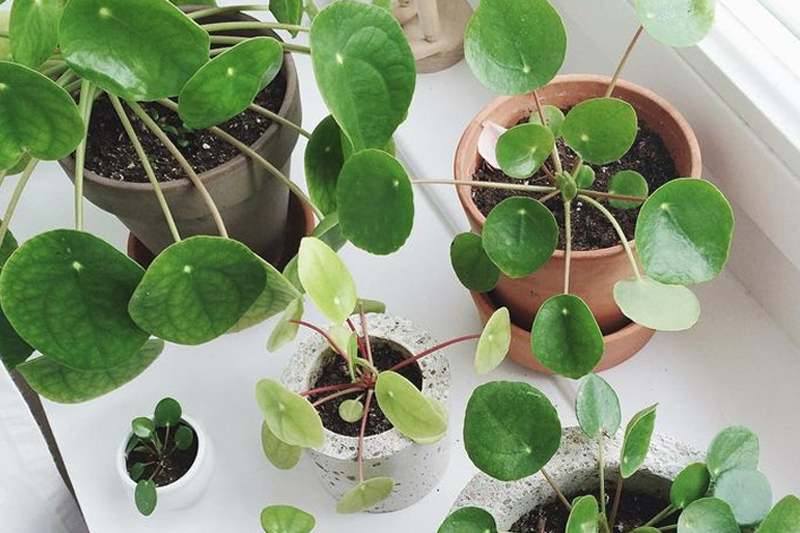The things we do to cheat. When the Liberty Head nickel was first minted in 1883, it only had the Roman numeral V (for five) on it. The mint assumed that everyone would know it was a nickel from its alloy of light metals. Soon enough, gold-plated Liberty Head V coins got passed off as $5 gold pieces, and the U.S. Mint quickly retooled the dies and struck new 1883 Liberty Head nickels with the word “cents” underneath the Roman numeral V.
This not only solved the problem but gave collectors two 1883 Liberty Head nickels, one with the word “cents” and one without it.
It would be hard to imagine gardening without money. Money for seeds, plants, tools and fertilizers. So it is fitting that money stars in the garden itself.
Take the Chinese Money Plant (Pilea peperomioides), so called because of its round, shiny, coin-like leaves. This sturdy houseplant isn’t fussy, but avoid direct sun that will scorch the fleshy leaves.
This good luck plant survives even in dry air of heated homes. From time to time you will see tiny pinkish-white flowers. Keep it where the temperature is above 50 degrees F. Keep the soil moist, but as with many other houseplants, soggy soil can kill it. To keep the soil draining, be sure your pot or container has drainage holes and use a light potting soil. You can mix your own by adding perlite or sand to regular potting soil.
Pilea peperomioides doesn’t need much, if any fertilizer. You can use an organic houseplant fertilizer or periodically re-pot with fresh soil. Only feed the plants during their peak growing season from early spring until early fall.
Chinese Money Plant is easy to propagate. As your plant matures, you will notice small baby plants growing from the base. Just dig them up and pot them into a new container, and you have a clone for growing or giving away.
Let money find you. If you do not get one as a gift, you can find Chinese Money Plant at area nurseries and online specialty nurseries such as Peppers Greenhouse in Milton or at www.accentsforhomeandgarden.com.
Even though it is a popular houseplant, it isn’t offered for sale regularly so you may have to special order it or join an online Pilea peperomioides exchange group.
Will it bring you good fortune? You might have more money from lower vet bills, because the Chinese Money Plant is considered nontoxic to both cats and dogs.
As for the Liberty Head nickel, it ceased production in 1913 with the introduction of the Buffalo nickel. No Liberty nickels were made that year. Or were they?
Years later, five 1913 Liberty Head nickels showed up. Seems that a rogue employee at the Philadelphia Mint struck the coins, now worth up to $4 million.






















































